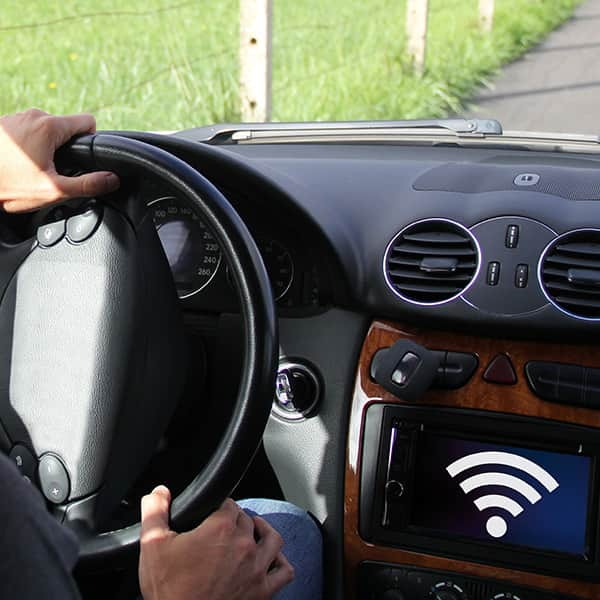
In a modern world when people are connected to technology and each other pretty much at all times, connected cars are revolutionizing the way we take to the road. But connected cars aren't just a passing trend. They hold a great deal of promise for preventing accidents, reducing fuel waste, and alleviating traffic headaches.
Accident Reduction
According to a U.S. Department of Transportation study, approximately 83 percent of auto accidents could be avoided by using connected car technology. Some cities, including San Antonio, have begun using connected car technology to help keep city buses on schedule and flow smoother through traffic. The technology can also help drivers steer clear of pedestrians, cyclists, downed trees, and construction barriers. Since connected cars can help reduce accidents, this means that many drivers could see their automobile insurance rates drops in the years ahead.
Traffic Efficiency
Connected cars can help traffic move across roads smoother and more efficiently. The same Federal DOT study revealed that traffic delays would be reduced by about 17 percent with connected cars. Red light tickets are issued regularly in many cities, and this technology has the power to let drivers know that they'll be making a red light violation before even entering the intersection.
Perhaps in the future, traffic lights won't even be necessary at all thanks to connected car technology. Vehicles can communicate with other vehicles, as well as roadway infrastructure, to help drivers safely travel from Point A to Point B. Traffic is a big cause of stress for many drivers, and this technology has the potential to alleviate many of these tensions.
Reduced Fuel Consumption
Connected cars use less gasoline, which means less waste and less of a toll taken on the environment. Idling wastes a lot of gas, and unnecessarily releases pollutants and chemicals into the air. Researchers found that connected cars use about five percent less gasoline and therefore emit about five percent less carbon dioxide into the atmosphere. Some cities, including London, are using connected car technology to track cars that emit an illegally high amount of pollutants and issue environmental hazard tickets.
Money Savings
All of these factors translate to savings for cash conscious drivers. Connected cars promise to help drivers save money on gas, emergency repairs, and routine maintenance. Top tech companies are working to get software grants to develop new products and train the next generation of traffic engineers. Although this technology isn't yet as common or required as airbags or seatbelts, industry experts predict that connected software could come standard in all vehicles in the near future.
"Manufacturers and service providers can remotely manage the embedded software in carsthroughout the lifetime of the vehicle," said Roger Ordman from the software company, Red Bend. "They can also substantially lower software-related warranty costs and avoid the expensive direct and indirect costs associated with product recalls."

